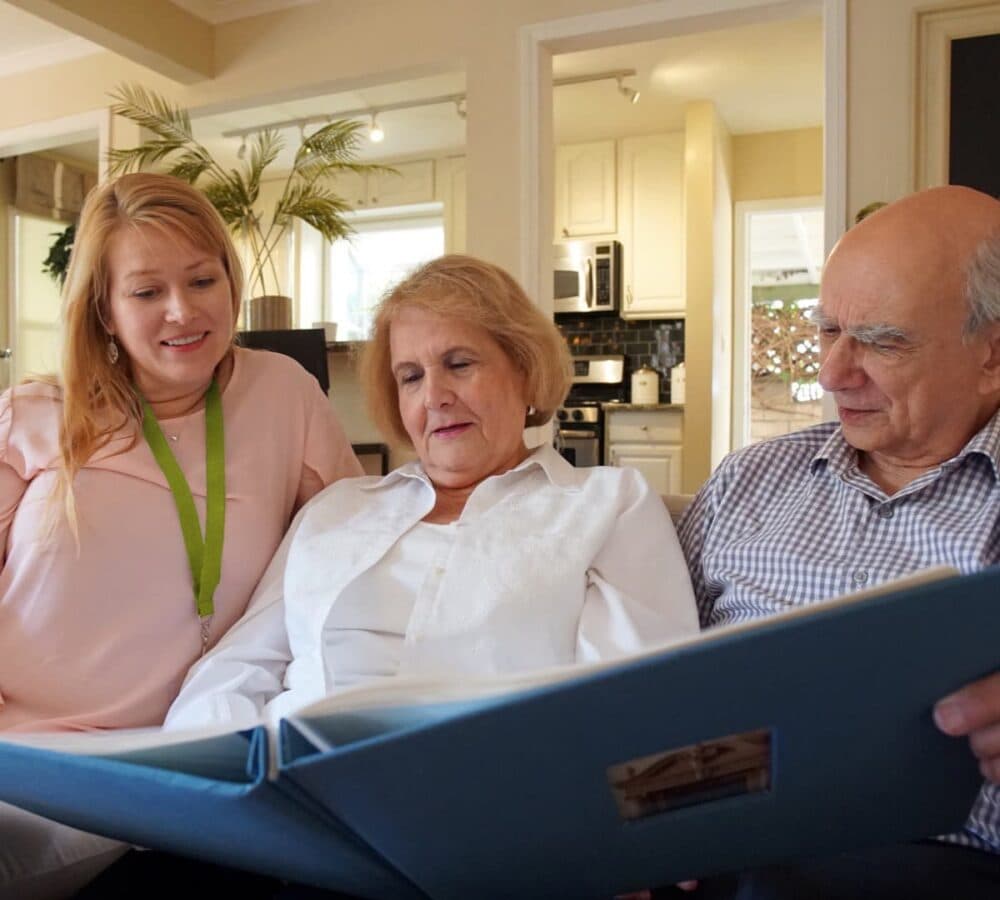Looking Back on Sunny Days: How Talking Memories Supports Older Adults

As the sunshine brightens our days and gardens burst into full bloom, summer is a season that invites us to slow down and reflect. For older adults, it’s the perfect time to revisit cherished moments: childhood holidays, summer fairs, family gatherings, or even a simple stroll by the sea.
In Lancaster, these memories aren’t just pleasant reflections – they’re a valuable way to enhance emotional wellbeing, reduce feelings of isolation, and support those living with dementia.
Why Reminiscence Makes a Difference
Reminiscing is the act of recalling and sharing life experiences. For older adults, especially those with cognitive conditions like dementia, this practice brings comfort, strengthens emotional resilience, and supports a sense of identity.
Tapping into long-term memory can spark joy, improve communication, and deepen relationships with loved ones and caregivers. For those who may struggle to express themselves in the present, familiar memories offer a grounding way to connect and feel seen.

Memory-Driven Activities That Make an Impact
At Home Instead Lancaster, we encourage memory-sharing through engaging, person-centred activities designed to inspire positive emotions and connection:
– Shared Storytelling: Reminding someone of their favourite summer experiences – perhaps a family holiday to the coast or a high-school dance in their youth – can lead to lively conversations and reinforce personal significance.
– Music as a Memory Trigger: Songs are powerful cues for the past. Whether it’s a wartime melody, a classic pop tune, or a hymn from church, music often unlocks vivid memories and brings deep emotional responses.
– Sensory Memory Exploration: Using familiar textures, scents, and sights – such as old travel trinkets, lavender, or seashells – can activate memories and stimulate conversation, especially beneficial for individuals with dementia.
– Creative Memory Expression: Activities like photo albums, journaling, or painting help older adults capture their stories visually. These creative outlets provide comfort and give meaning to personal history in a lasting, tangible way.
Emotional and Cognitive Gains from Reminiscence
Evidence supports that reminiscence offers a range of mental and emotional health benefits:
– Improves Emotional State: Recalling joyful memories can help ease anxiety and lift mood, often leading to laughter, smiles, and a renewed sense of wellbeing.
– Encourages Social Interaction: Talking about the past provides a natural entry point for conversation, which helps reduce loneliness and strengthens bonds with family, friends, and carers.
– Stimulates Cognitive Function: Engaging the brain through structured memory recall can enhance memory retention and provide mental stimulation – a particularly helpful activity for those with dementia.
– Maintains Identity: Revisiting life stories helps individuals preserve their sense of self and remain connected to who they are, even in the face of memory loss.
How Home Instead Lancaster Supports Reminiscence
Here at Home Instead Lancaster, we recognise the profound value of personal history in older adults’ lives. Our Care Professionals are specially trained to incorporate memory-based conversations and activities into daily care, offering support that is respectful, engaging, and tailored to the individual.
We place great emphasis on building trust and making every moment meaningful, whether that’s through a gentle chat about school days or a shared laugh over a favourite song. For those living with dementia, our approach promotes continuity, calm, and emotional security.

Contact Us
Want to learn how reminiscence therapy could benefit your loved one? We’re here to help you explore personalised home care, dementia support, and companionship services in Lancaster.
Call us at 01524 951574
or
Recommended Further Reading:
Effects of Reminiscence Therapy on Psychological Outcome Among Older Adults